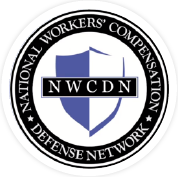OSHA Wields Corporate Settlement Talks To Tamp Down Workplace Violence Risks
| OSHA has reached a milestone settlement with a corporate health care provider that gives the agency a foothold to proactively address workplace violence risks, using its negotiating powers to take on an issue that officials signal will increasingly become a federal enforcement priority in health care.
Agency leaders have indicated that OSHA will use whatever creative means possible to compel employers to adopt violence control plans even without a standard that would set out specific requirements. Workplace violence citations are generally brought under the OSH Act general duty clause, often with OSHA then conferring with the employers to negotiate down the fines in return for beefed-up safety measures. OSHA reached a settlement with Corizon Health Inc., which provides medical, dental and mental-health services to inmates at correctional facilities, on implementing changes to reduce workplace violence hazards for employees at its locations. One of the company’s most well-known work sites is the Rikers Island facility in New York. Officials last year cited Corizon for what they charged was a failure to develop and implement an effective program to prevent workplace violence for its Rikers Island employees. Corizon in return for the settlement withdrew its contest of the citations. The company will also have to name a top-level official to oversee compliance with the settlement. An OSHA solicitor last week called the agreement “significant” given Corizon’s dominant position in the correctional health care industry. “It has the potential to improve how workplace violence issues are addressed by employers throughout the industry,” said Jeffrey Rogoff, the department’s regional solicitor of labor in New York, in a July 1 statement. “While Corizon is taking corrective action at Rikers Island, it will expand that effort and change its practices at hundreds of locations to enhance safety for countless employees,” said Robert Kulick, OSHA’s regional administrator in New York. Corizon will have to adopt comprehensive and specific abatement measures at its facilities under the agreement, modeled after workplace violence guidelines already developed by OSHA. Each Corizon location will develop, in consultation with employees and unions, a workplace violence prevention policy; an incident reporting system; enhanced recordkeeping procedures; a workplace violence hazard assessment and prevention program; and employee training. OSHA noted that the settlement also requires Corizon to appoint a senior official to oversee compliance with the settlement agreement and the OSH Act; allow OSHA to conduct inspections to monitor compliance; and seek greater coordination with local departments of correction or similar agencies that work with Corizon facilities. Also the company will pay a fine of $38,000. Corizon officials could not be reached for comment on the settlement. Occupational safety and health experts say the profile of workplace violence is growing and that OSHA has made clear that even in the absence of a standard it will enforce against such risks. The issue’s increasing prominence is plainly on display not just at the national level, but also in several states that have considered or enacted legislation specifically aimed at violence against workers, notes Aaron Trippler, director of government affairs for the American Industrial Hygiene Association. “There’s been a lot of legislation issued in states on workplace violence,” says Trippler, who keeps track of occupational health bills and OSHA activity across the country. “It keeps becoming more and more important. A lot of bills are being introduced.” Federal OSHA has also been working on initiatives that can be used even if a federal rulemaking never occurs, Trippler points out, saying OSHA seems “creative at going in and looking at the health care industry” on a wide array of issues — demonstrated just recently by a push for safe patient handling to prevent ergonomic hazards. — Christopher Cole () |

